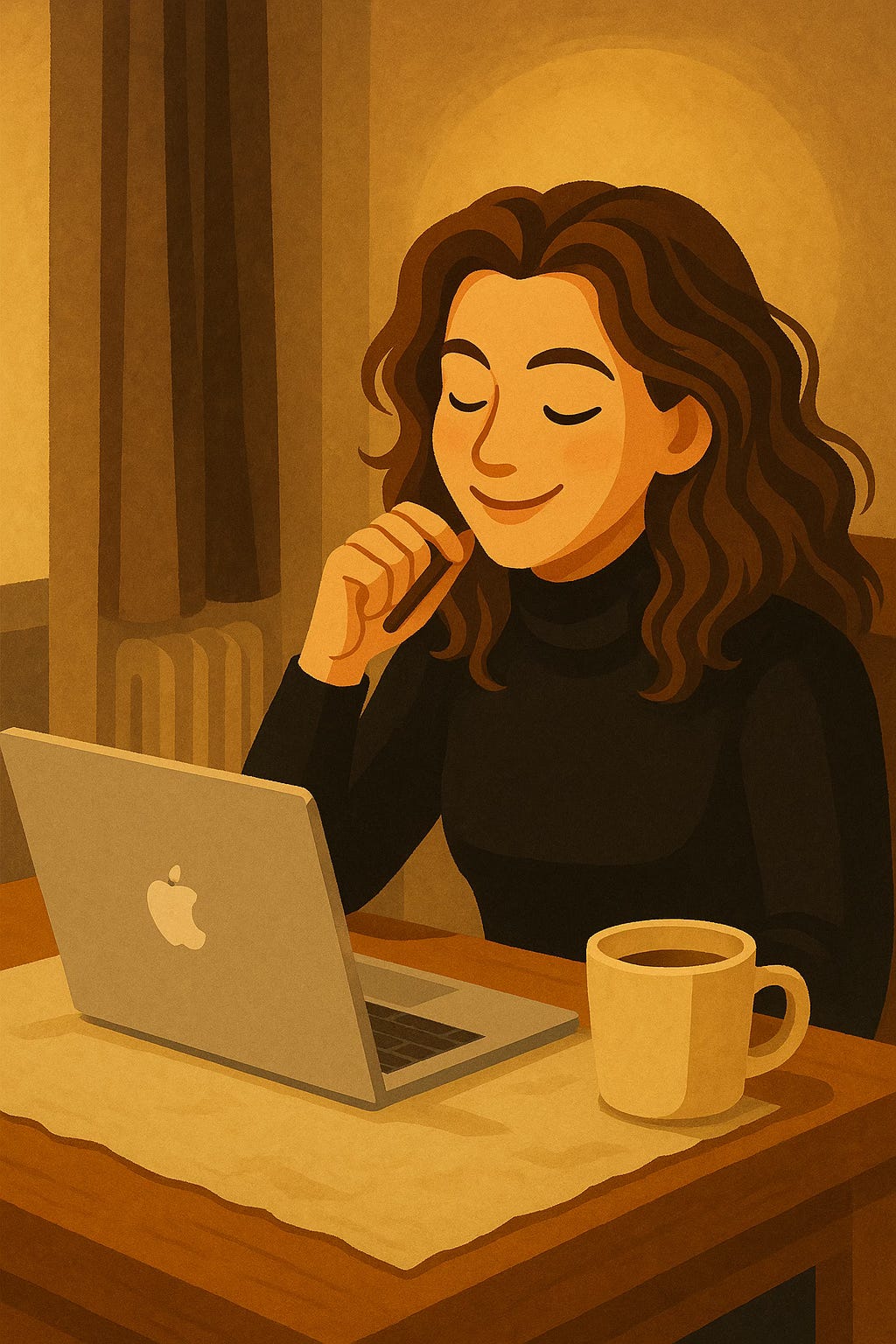Do you know one of the most common causes of stress? Multitasking. Yup — the very thing we've been proudly flaunting for decades as a badge of productivity. Let’s talk about it.
We’re praised for being busy. For juggling.
When I first moved to New York, one thing I noticed was how friends and colleagues would ask, “How are you?” — not as a real question, but as a stand-in for “Hello.” And more often than not, the answer would be, “Busy, but good.”
I noticed it. Started saying it myself. And slowly, that mentality became part of my personality. We were proud of how much we got done in a day. Our productivity became our identity. We were “good” at multitasking: answering emails while finishing a report while helping a colleague while ordering an iced latte at Blue Bottle.
But in my quiet detour, I’ve come to realise we were wrong the whole time.
First of all, we weren’t multitasking — we were task-switching. Which, it turns out, isn’t productive. Second, we were proudly burning ourselves out.
Let’s break it down.
1. Cognitive overload.
Your brain isn’t designed to handle multiple high-focus tasks at once. When you're toggling between writing a pitch deck, checking your inbox, and pretending to listen on a Zoom call — your brain is working overtime. It’s not multitasking; it’s juggling knives. You don’t even notice the fatigue building until your brain suddenly short-circuits while you’re trying to find a document, you just had.
Multitasking lowers productivity and promotes fatigue – Psychology Today
2. Reduced productivity.
I’ve definitely been conditioned to think that doing more = success. But in reality, multitasking makes you less efficient. Every time you switch from one task to another, your brain needs to recalibrate. That tiny lag adds up. You forget where you left off. You miss details. You redo work. And then you wonder why your to-do list never seems to shrink.
Task switching comes with a cognitive cost – American Psychological Association
3. Increased anxiety.
When your attention is split five, six, seven different ways, you’re never fully present in any of them. You always feel a step behind, like you’re forgetting something — because you probably are. I feel like I lived in this space for months. That low-level buzz of anxiety becomes your baseline. Sleep gets weird (ever woke up in the middle of the night sweating over a certain email you forgot to send?). You feel wired and tired at the same time. You can’t focus, but you can’t stop either. You just keep going, hoping it’ll all click eventually.
Digital multitasking elevates stress markers – National Library of Medicine (PMC)
4. Lack of accomplishment.
This was the part that hit me hardest: the realization that despite being busy all day, I rarely felt done. Everything was in motion, but nothing felt complete. Multitasking left me with half-finished thoughts, half-written emails, and half-drunk (cold, boring) coffees. I wasn’t just exhausted — I was mentally scattered. Like my brain had 47 open tabs and no idea where the music was coming from.
So I’ve made a decision. From now on, I’m going to proudly refuse to multitask — and singletask instead.
I’m going to put my phone away when I tackle my inbox. I’m going to close tabs, shut out noise, and focus on one thing at a time — fully. I’m going to create boundaries around my attention, because it turns out that attention is a resource, not a reflex.
If a colleague needs me, they can book a meeting or assign a task — not drop a Slack bomb mid-flow and expect instant replies. I’m done treating my concentration like an open-door policy.
I’m not trying to be difficult. I’m trying to protect my brain.
Because here’s the thing: doing one thing at a time isn’t lazy. It’s intentional. It’s choosing depth over distraction. Clarity over chaos. And I think we’re all craving a little more of that — a little more peace in the process.
So if you see me staring out the window, deep in thought, or replying to your message a few hours later — just know I’m not ignoring you. I’m just doing one thing at a time. On purpose.
Until then,
Christina






This, all of this!! I've been a multitasker for years since my job is all about multi-tasking and I always feel like something has been forgotten or just mentally tired when I get home that I need a break from talking and thinking.
I fully agree. Also, singletasking can help with some other issues like procrastination. I suffer of that myself... I get stuck in something and immediately try to switch for something else, instead of facing the insecurities that make me feel stuck in the other task 🫂